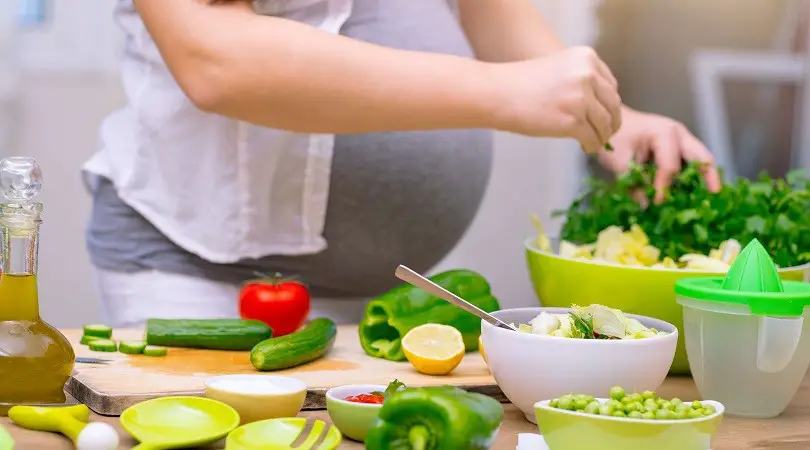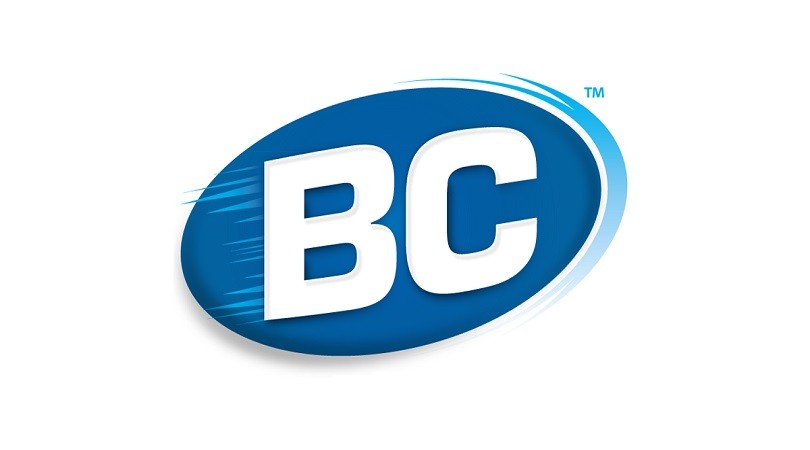Last Updated on January 6, 2025
Yes, you can safely eat ham during pregnancy. Ham is a good source of protein and essential nutrients that are beneficial for both you and your baby’s growth and development.
However, it is important to consume ham in moderation and ensure it is thoroughly cooked to avoid any foodborne illnesses. Pregnant women should also be cautious of high sodium content in processed ham and opt for fresh or low-sodium options whenever possible.
Overall, including ham as part of a balanced diet can be a healthy choice during pregnancy.

Is It Safe To Consume Ham During Pregnancy?
Ham can be safely consumed during pregnancy as long as it is properly cooked to kill any harmful bacteria. Pregnant women should avoid eating raw or undercooked ham to reduce the risk of foodborne illnesses.
Ham is a popular choice for many, but as an expectant mother, you may be wondering if it is safe to consume during pregnancy. While ham can be enjoyed as part of a well-balanced diet, there are some factors you should consider before indulging.
In this section, we will discuss the risks associated with ham consumption during pregnancy, as well as safety guidelines to keep in mind.
Factors To Consider Before Eating Ham:
- Sodium content: Ham is known for its high sodium content, which can potentially lead to high blood pressure and water retention. Excessive sodium intake can be harmful to both you and your baby.
- Foodborne illnesses: Ham is a processed meat that can carry bacteria such as Listeria monocytogenes. This bacteria poses a greater risk to pregnant women, as it can lead to severe complications such as miscarriage, stillbirth, or preterm labor.
- Nitrate and nitrite content: Some hams are cured using nitrate or nitrite salts, which can be converted into harmful compounds called nitrosamines. High levels of nitrosamines have been associated with adverse health effects.
The Risks Associated With Ham Consumption During Pregnancy:
- Listeriosis risk: Raw or undercooked ham, as well as deli-style or pre-packaged sliced ham, may be contaminated with Listeria. This bacteria can easily cross the placenta and cause infections in the unborn baby.
- Sodium-related complications: Excessive sodium intake during pregnancy may contribute to gestational hypertension and preeclampsia. These conditions can lead to complications for both the mother and the baby.
Safety Guidelines For Consuming Ham During Pregnancy:
- Cook thoroughly: Ensure that any ham you consume during pregnancy is cooked thoroughly to kill any harmful bacteria. This includes reheating pre-cooked ham until it is steaming hot.
- Choose low-sodium options: Opt for low-sodium or reduced-sodium ham to minimize your sodium intake. Check the labels for nutritional information before making a purchase.
- Avoid deli-style hams: Deli-style hams, including sliced ham from the deli counter or pre-packaged ham, pose a higher risk of contamination. It is best to stay away from these varieties during pregnancy.
- Practice proper food handling: Always wash your hands before and after handling ham, and avoid cross-contamination with other foods. Store ham properly in the refrigerator and consume it within the recommended timeframes.
While ham can be a delicious addition to your meals, it is important to consider the potential risks and follow safety guidelines during pregnancy. By being mindful of the factors discussed and taking necessary precautions, you can enjoy ham safely as part of a balanced diet.

Nutritional Value Of Ham During Pregnancy
Ham can be consumed during pregnancy as long as it is cooked thoroughly to eliminate the risk of harmful bacteria. It is a good source of protein and essential nutrients like iron and vitamin B12, which are beneficial for both the mother and the developing baby.
Can You Eat Ham During Pregnancy?
Ham is a popular and delicious meat that many people enjoy, but when it comes to Pregnancy, it’s important to consider whether ham is safe to consume. We will explore the nutritional value of ham during pregnancy, the benefits of consuming it, and the recommended serving size for pregnant women.
So, let’s dive in!
Essential Nutrients Found In Ham:
- Protein: Ham is a good source of protein, which is essential for the growth and development of your baby. It helps in building and repairing tissues.
- Iron: Iron is crucial during pregnancy as it helps in the production of red blood cells, which carry oxygen to your baby. Ham contains iron that contributes to your daily intake requirements.
- Vitamin B6: Ham is rich in vitamin B6, which aids in brain development and helps regulate your mood and sleep patterns.
- Zinc: Ham contains zinc, which plays a vital role in supporting a strong immune system and promoting proper cell growth and development.
Benefits Of Consuming Ham During Pregnancy:
- Essential nutrients: As mentioned above, ham is packed with essential nutrients like protein, iron, vitamin B6, and zinc, which are vital for the healthy growth and development of your baby.
- Convenient and versatile: Ham can be easily incorporated into various dishes, making it a convenient choice for pregnant women who may have specific food cravings or aversions.
- Source of energy: Pregnancy can leave you feeling tired and fatigued. Ham provides a good source of protein and other nutrients that can boost your energy levels and keep you feeling energized throughout the day.
Recommended Serving Size Of Ham For Pregnant Women:
- Moderation is key: While ham can be a part of a healthy diet during pregnancy, it is essential to consume it in moderation. Limit your intake to 2-3 servings per week to ensure you’re not exceeding your daily sodium intake.
- Watch the sodium content: Ham is often high in sodium, which can lead to high blood pressure and other health issues. Opt for lower-sodium options or try to balance your sodium intake by consuming other low-sodium foods alongside ham.
- Food safety precautions: It is crucial to ensure that the ham you consume is properly cooked to avoid the risk of foodborne illnesses. Heat it until it is steaming hot, and avoid consuming undercooked or raw ham.
Ham can be a nutritious addition to your pregnancy diet when consumed in moderation and following proper food safety precautions. Its protein content and other essential nutrients can support the growth and development of your baby. Just remember to choose lower-sodium options and ensure it is cooked thoroughly.
As always, consult with your healthcare provider for personalized advice regarding your diet during pregnancy.
Safe Preparation And Consumption Of Ham During Pregnancy
Ham can be safely consumed during pregnancy as long as it is prepared and cooked properly to minimize the risk of foodborne illnesses. It should be heated to an internal temperature of 165°F to ensure any potential bacteria are destroyed.
Pregnant women should avoid consuming raw or undercooked ham.
Can You Eat Ham During Pregnancy?
Ham is a popular choice when it comes to lunch meats, but is it safe to consume while pregnant? Many women are concerned about the potential risks associated with eating ham during pregnancy. In this section, we will explore the safe preparation and consumption of ham during this crucial time.
Read on to learn some valuable tips and guidelines that will help ensure a healthy and worry-free experience.
Tips For Selecting Safe And High-Quality Ham:
- Look for cooked ham that is free from nitrates and nitrites: These are preservatives that are commonly used in processed meats and may pose a risk to the baby if consumed in large amounts.
- Choose ham that is fresh and from a reputable source: Opt for freshly cooked ham that has been properly refrigerated and stored to minimize the risk of bacterial contamination.
- Read the labels: Look for a ham that is labeled as “pregnancy-safe” or “suitable for pregnant women” to ensure that it meets the necessary safety standards.
Proper Handling And Storage Of Ham:
- Keep ham refrigerated: After purchasing or cooking ham, make sure to promptly refrigerate it at or below 40°F (4°C) to prevent the growth of bacteria.
- Store separately from other foods: To avoid cross-contamination, store ham separately from other foods, especially those that are consumed raw or require minimal cooking.
- Use within a few days: Consume ham within 3-5 days of purchase or cooking to maintain its freshness and minimize the risk of bacterial growth.
Cooking Methods To Ensure Safety While Consuming Ham:
- Heat thoroughly: When consuming ham, it’s crucial to heat it to an internal temperature of at least 165°F (74°C). This will help kill any potential bacteria that may be present.
- Avoid consuming raw or undercooked ham: Uncooked or undercooked ham can harbor harmful bacteria such as Listeria, which can pose serious risks to both the pregnant woman and the baby.
- Consider reheating leftovers: If you have leftover ham, it’s best to reheat it thoroughly before consuming it to eliminate any potential pathogens.
Remember, when it comes to eating ham during pregnancy, taking the necessary precautions is key. By following these tips for selecting safe and high-quality ham, practicing proper handling and storage, and using appropriate cooking methods, you can enjoy ham as part of a well-balanced diet without compromising the health of yourself or your baby.
Frequently Asked Questions
Can You Eat Cooked Ham When Pregnant?
Yes, you can safely eat cooked ham during pregnancy without any concerns.
Can I Eat Thanksgiving Ham While Pregnant?
Yes, you can safely eat Thanksgiving ham while pregnant.
Can You Eat Cooked Ham Cold When Pregnant?
Yes, it is safe to eat cooked ham cold while pregnant.
Can You Eat Ham Lunch Meat While Pregnant?
Yes, it is safe to eat ham lunch meat during pregnancy, as long as it is fully cooked.
Can You Eat Ham During Pregnancy?
Ham can be enjoyed during pregnancy as long as it is cooked thoroughly to kill any bacteria or parasites that may be harmful to the baby.
Conclusion
While ham can be a delicious addition to your meals, it is important to exercise caution when consuming it during pregnancy. As we have discussed, it is crucial to ensure that the ham you eat is cooked thoroughly, as this reduces the risk of harmful bacteria such as listeria.
By heating it properly, you can enjoy ham safely without compromising your health or the health of your baby. It is also important to moderate your intake and balance it with other nutritious foods for a well-rounded diet. Remember to consult with your healthcare provider for personalized advice and recommendations based on your specific needs and circumstances.
Making informed choices and taking necessary precautions will ensure a healthy pregnancy journey for you and your little one.











